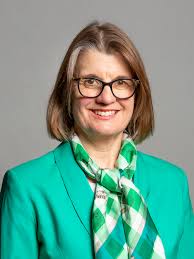Rachel Maclean – 2020 Statement on Bus Fare Data
Below is the text of the statement made by Rachel Maclean, the Parliamentary Under-Secretary of State for Transport, in the House of Commons on 16 June 2020.
I beg to move,
That the draft Public Service Vehicles (Open Data) (England) Regulations 2020, which were laid before this House on 13 May, be approved.
The draft regulations are being made in order to provide new legislation to require bus operators of local bus services across England outside London, including cross-border services, to openly publish data electronically about their services, including timetables, fares and location data.
This is open data that is published electronically. It is publicly discoverable and can be used by those who wish to do so without restrictions on its use and disclosure. Open data has transformed other sectors—for example, rail—with open data feeding customer-facing apps, such as Trainline and National Rail Enquiries, simplifying journey planning and ticket purchase. Bus open data will allow app developers to create applications, products and services for passengers so that they can plan journeys, find best-value tickets and receive real-time service updates. That is absolutely essential if we are to encourage the travelling public to use their local bus services and make the switch to public transport, which is vital to reducing congestion and improving air quality.
Since 2007, Transport for London has made all its bus and transport network data freely available through the London data store. Currently, more than half of these journeys—51%—are in London, with the remaining 49% across the rest of the country. Apps such as Citymapper and Bus Times are together found to be delivering economic benefits of between £90 million and £130 million a year.
Transport for West Midlands has also invested heavily to improve its public transport data in recent years and is one of the few areas to report year-on-year growth— of 7.8 million journeys—against a continuing backdrop of decline in bus passenger journeys elsewhere. Those statistics show that we can change how buses are perceived and attract new customers.
Currently, Citymapper only operates in Birmingham and London, but we need to enable the provision of such apps and services up and down the country. For example, the rules will mean that any operator of a local bus service across England must publish their timetable, fares and location data to the bus open data service before that service comes into operation. The rules will be enforced by the Driver and Vehicle Standards Agency, which will be able to conduct checks to ensure that the operator is complying.
In domestic law, where a local bus service is being operated across England, operators will be legally required to make the information freely available to comply with the Public Service Vehicles (Open Data) (England) Regulations 2020. Punctuality data will also be legally required and local transport authorities will be legally responsible for maintaining data about bus stops and stations.
It is a civil offence for any operator of a service to be in breach of the requirements in the regulations and the regulations will be commenced in a phased manner, with timetables and stop data requirements being enforceable from 31 December 2020. Basic fares and location data will be enforceable from 7 January 2021, with complex fares being added from 7 January 2023. Breaches of the requirements by operators can be enforced under existing provisions in section 155 of the Transport Act 2000. The draft instrument ensures that those operators who breach the new requirements may be faced with financial penalties or the removal of their licence. The fines can be up to £550, and that sum might be multiplied by the number of vehicles operating under all the PSV operator licences held. The policy area of public service vehicles open data is devolved, but Scotland and Wales are currently preparing equivalent legislation.
In summary, the regulations are essential for ensuring that the operators of local bus services are compelled to make essential information freely available to help passengers plan their journeys. The rules are at the heart of improving the public transport experience, digitally transforming the bus sector and the levelling-up agenda. I am sure that Members share my desire to ensure the rules can be fully enforced as soon as possible. I commend the regulations to the House.

